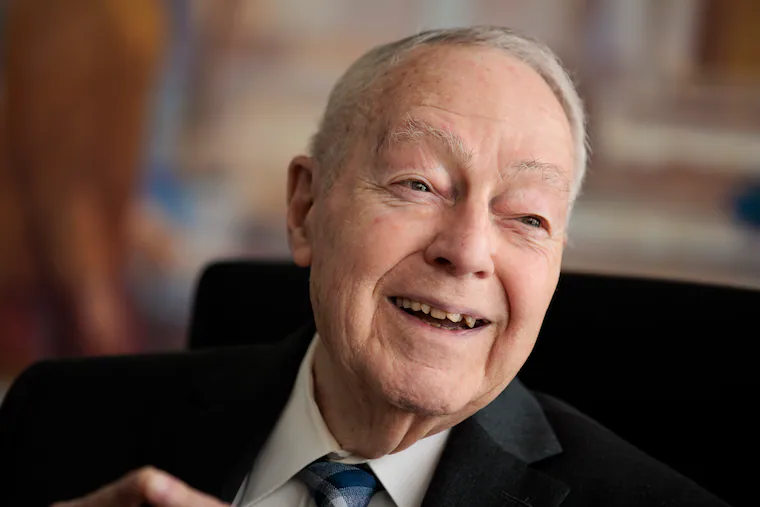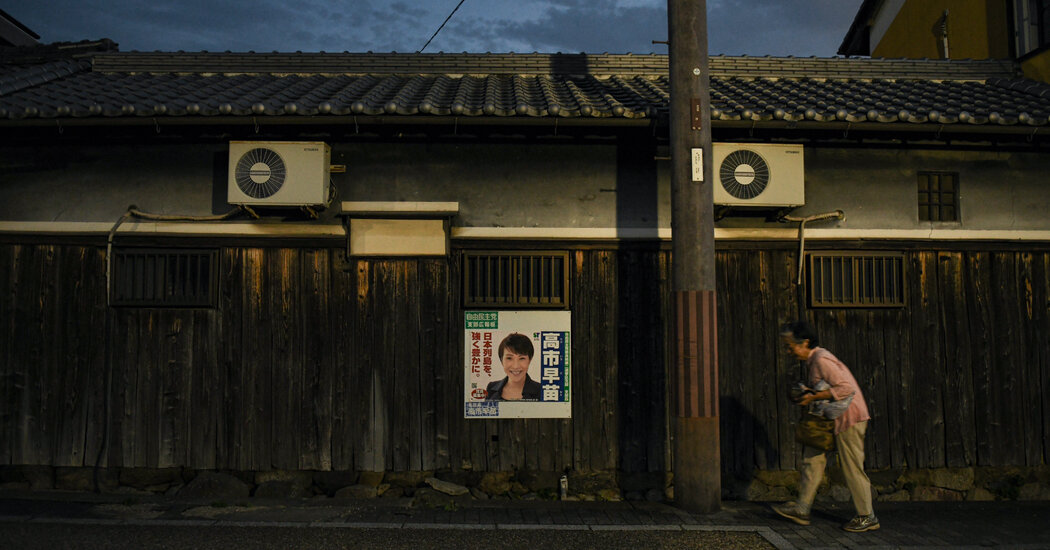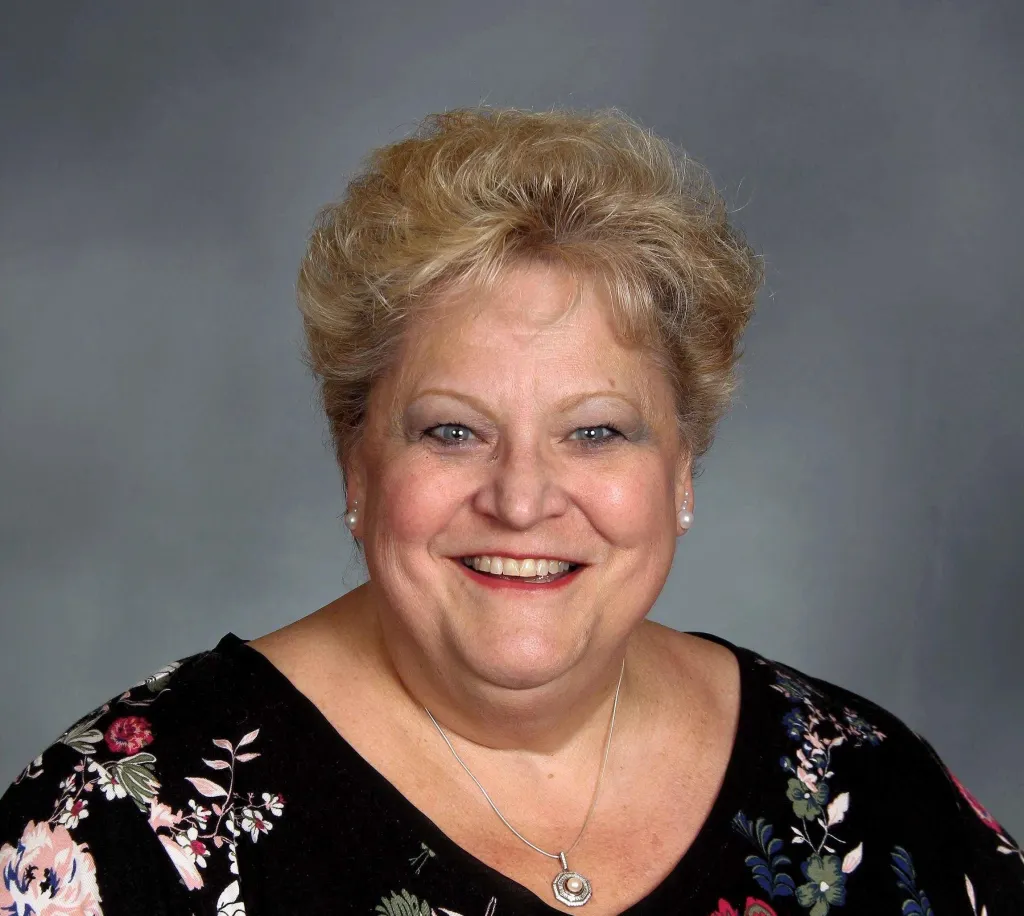Copyright The Philadelphia Inquirer

After graduating law school in the 1950s, Joseph H. Rodriguez was told he wouldn’t go far and should consider changing his last name. He ignored that advice and went on to become New Jersey’s first Hispanic federal judge — and its longest serving. He recently retired after 40 years as a jurist. Rodriguez, 94, began his career as a community activist during a tumultuous time in Camden in the ‘60s and as a trial lawyer at a prominent law firm. He later was involved in landmark cases, including the Mount Laurel affordable housing decision before the state Supreme Court. He was among the first Hispanic lawyers in Camden, and New Jersey as a whole. He also served as the state’s public defender and advocate. Rodriguez mentored countless aspiring lawyers and judges, and as his stature rose nationally he never forgot his humble roots. Associates dubbed him “a gentle giant.” “He served with humility, grace, wisdom, and humor,” said Chief U.S. District Judge Renee M. Baum, who met Rodriguez as a federal prosecutor. “We all looked up to him.” Rodriguez became a senior judge in 1998, which reduced his workload, but he continued to preside over trials and write opinions, filing his last decision about three weeks before he retired. Rodriguez decided last month to quietly retire. He left the Mitchell Cohen Courthouse in downtown Camden after an emotional send-off with fellow judges and friends. “I just wanted to slip into the shadows.” he said in a recent interview. “What I’ve done some people were in favor of it, some were not. It’s there as a public record. I stand by it.” Rodriguez was born in 1930 in Camden and grew up a few blocks from the courthouse where he would later preside. His father, Mario, a Cuban national raised in Puerto Rico, was aboard the passenger ship SS Carolina when it was torpedoed by a German U-boat off the coast of New Jersey in June 1918. The Germans targeted six ships on what was known as Black Sunday. The Carolina sunk, and Mario Rodriguez spent two days on a lifeboat before swimming ashore in Atlantic City. Rodriguez would later have a full circle moment, when scuba divers made a claim in federal court to salvage the vessel. He said he granted sole rights after the divers presented a brass “C” from the ship’s name on the stern and a china dinner plate with its logo. Mario raised four sons and a daughter in Camden with his wife, Carmen, and worked in a tobacco factory. The couple, among the first Hispanic families to settle in Camden, was highly respected in the community, and often served as interpreters and gave advice to other Hispanic residents. As a youngster, Rodriguez recalled hearing his father recite the U.S. Constitution to study to become a citizen, which he did in 1939 — in the same courtroom where his son later became a judge. The memory stuck with Rodriguez and became a guiding principle in his legal career. His parents and sister were killed in a car accident in 1973. Rodriguez graduated from what is now La Salle University in 1955. After spending three years in the military, he obtained his law degree in 1958 from Rutgers Law School in Camden. When he landed his first job at a real estate firm, the agent urged Rodriguez to change his name to Joe Roddy. “I was told with that name I could never go far,” he recalled. “I would never change my name.” Rodriguez was hired as an attorney at Brown & Connery, one of the oldest law firms in South Jersey. He earned a reputation as a tough trial lawyer and specialized in medical malpractice. He later became the first Hispanic president of the New Jersey Bar Association. Rodriguez was pressed into action when unrest erupted in Camden in 1971, after a Hispanic man was killed while in police custody. The Hispanic community demanded an investigation. A protest turned into days of rioting in front of City Hall. Then the only known Hispanic lawyer in Camden, Rodriguez met with then-Mayor Joe Naldi to negotiate a settlement. The police officers were eventually indicted by a grand jury, but acquitted. “He was the calm in the eye of the storm,” said Gualberto “Gil” Medina, who organized a student protest at the time. “He made it clear that the cause was just but the means had to be tempered.” Rodriguez eventually left Camden for the suburbs but remained connected to the city. He was one of the original organizers of Camden’s San Juan Bautista Parade. “He became the respected patriarch of the Hispanic community,” said Medina. Rodriguez advocated in many precedent-setting cases for New Jersey’s disenfranchised residents. They include a landmark product liability case that resulted in the state Supreme Court ruling in 1965 that a mass builder could be held liable for a defective hot water system that severely scalded a child. As chairman of Camden Legal Services, he brought a lawsuit that resulted in a requirement for municipal judges to appoint a lawyer to represent defendants facing possible jail time. Another case established tenant rights. Then-Gov. William T. Cahill named Rodriguez chairman of the State Board of Higher Education in 1972, and later chairman of the State Commission of Investigation, where he investigated organized crime. Although Rodriguez was a Democrat, former Republican Gov. Thomas Kean appointed him as the state’s Public Advocate in 1982. In that role, Rodriguez filed the complaint that lead to Mount Laurel doctrine, through which the New Jersey Supreme Court outlawed local discriminatory zoning regulations and required municipalities to provide affordable housing. “He always had a public conscience,” said Carl D. Poplar, a lawyer and longtime friend. Rodriguez also was involved in the landmark right-to-die case of Karen Ann Quinlan, whose parents waged a fight to have her removed from a respirator. “We didn’t go around looking for trouble. If it had to be done and people had to be helped, you help them,” Rodriguez said. President Ronald Reagan appointed Rodriguez to the federal bench in 1985. Rodriguez was known as an easygoing and fair judge. U.S. Supreme Court Chief Justice William Rehnquist dispatched Rodriguez to Montgomery, Ala., in 1999 to preside over a desegregation case. “It was like going to heaven working for him,” said Carl Nami, his court reporter for 18 years. “I don’t how I was so fortunate.” Nicknamed “Joe Rod,” Rodriguez was a role model for other judges, said retired U.S. Magistrate Joel B. Rosen. He could always be counted on for jokes and bad puns at their weekly lunch gatherings, he said. “He’s always been a gentleman and what in my view what a judge should be: knowledgeable and fair,” Rosen said. Said Robert Kugler, another retired federal judge: “He kept the courthouse going.” The jury room was named in honor of Rodriguez. “His judicial demeanor and temperament are unrivaled,” said civil rights attorney Stanley O. King. “The likes of him I don’t know if can ever be replaced or replicated.” Before stepping down, Rodriguez performed a final act as a sitting judge. He performed the wedding ceremony for a granddaughter, Taylor, in his courtroom. He also recently married a grandson, Quinn, in a beach ceremony. Rodriguez said he plans to spend more time with his wife of 71 years, Barbara, and his four daughters, 10 grandchildren, and seven great-children. He enjoys cooking for them, especially paella, his specialty dish. Asked what he would like his legacy to be, Rodriguez choked back tears. His daughter, Lisa Rodriguez, an attorney with Dilworth Paxson, passed him a tissue. “You can’t do it all, but you should never stop trying,” he said. “If everyone backs away you’re just giving up.”



